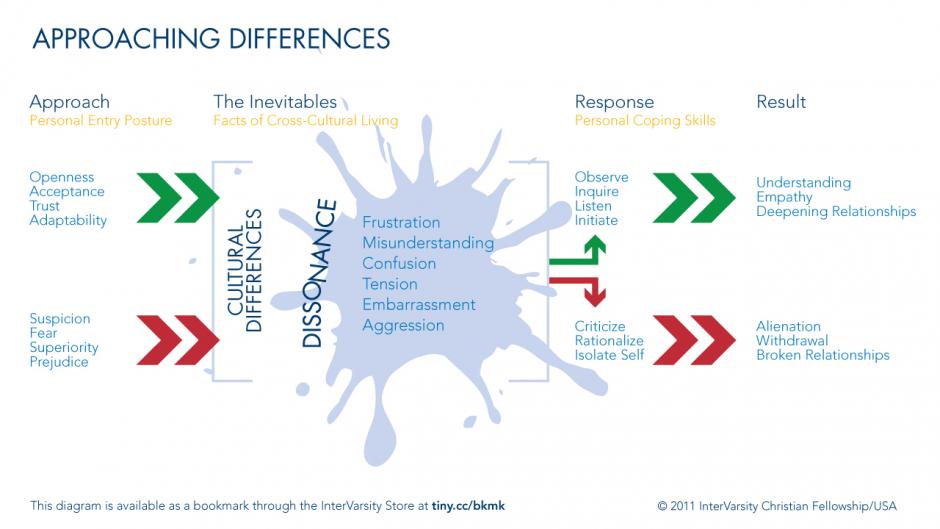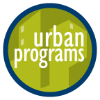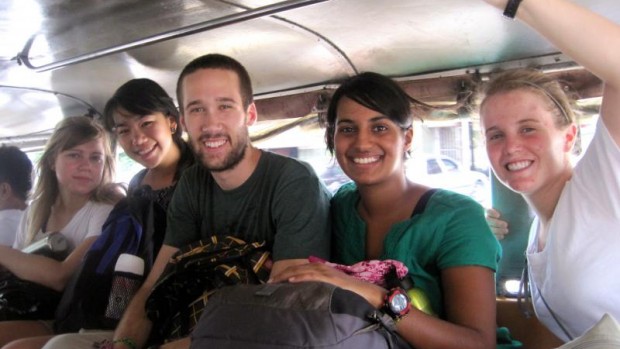It is no coincidence that InterVarsity has both a significant commitment to multiethnic ministry and a thriving ministry connecting college students to the urban poor. Developing meaningful relationships with the urban poor fuels multiethnic ministry.
We should be shocked to ever find one without the other.
A Different Experience of Reality
Very few of our college students experienced significant urban poverty firsthand before coming to college. They may have struggled financially or worried about making ends meet, but most haven’t grown up around garbage villages and slums. The college admissions process is far less open to the global, urban poor than it is to the average student at an American college.
When students cross socio-economic lines and build relationships with the urban poor, they encounter a different experience of reality. They meet a person made in God’s image who – despite many, many commonalities – might have a different expectation about what’s possible in the future, a different perspective on wealth and power, and a different way of interacting with community. Students who thrive in ministry to the urban poor (and relationships in the field) listen to and honor the experience of reality that’s held by the people they meet.
If you’ve listened to stories from around the globe about police participating in child trafficking in impoverished communities, it’s not that difficult to believe that police here in the US might harass a man just because he’s black.
This same posture proves absolutely necessary in a multiethnic ministry. Different ethnic communities experience reality in different ways, ways that are shaped by their history and families and heritage. When members of one ethnic community fail to listen to and honor the experience of reality that another ethnic community has been having, it forms a barrier between them.
To put a sharp end on this point, if you’ve listened to stories from around the globe about police participating in child trafficking in impoverished communities, it’s not that difficult to believe that police here in the US might harass a man just because he’s black.
Listening to the urban poor gives us access to diverse perspectives on reality, preparing us to receive our brothers and sisters of different ethnicities.
Shaping Our View of Self

What is normal? Students who have participated in Global Urban Treks and Urban Projects often report that their perception of what’s normal shifts during their time of serving. What previously appeared “normal” now looks “privileged.” Upon returning home, some students tell stories of wandering through the grocery store in awe of the amount of food available and humbled that they have the resources and freedom to choose amongst the brands.
Multiethnic ministry requires us to move beyond “normal.”
What is “normal?” “Normal” can be a tremendous barrier to multiethnic ministry. We do what feels normal to us – what’s comfortable, what we think’s expected, what we’ve always done – and then feel disappointed when the only people who get involved are people just like us. Multiethnic ministry requires us to move beyond “normal.”
Shifting from “this is normal” to “this is my comfort zone” or “this is my preference” happens all the time in our ministry to the urban poor. Poverty comes with a variety of sensory markers (visual signs, smells, physical evidence, etc.) that signal to students that the “normal” life of the people with whom they’re spending time differs from what they’re used to experiencing. Shifting “normal” feels necessary. Students who don’t make that shift melt down and “red-line” (see above diagram). But those who can make the shift can experience tremendous blessing and relationship. And the same is true in multiethnic ministry.
Students who have experienced the “normal” shift in ministry with the urban poor have a head start when it comes to engaging in multiethnic ministry.

Discovering What They Have to Offer
All of us have something to offer to help, heal and bless our neighbors. For too long, ministry to the urban poor forgot this essential truth. Missionaries worked to alleviate the suffering of the poor, but failed to receive anything from them in return. Though bellies were filled, people were treated without dignity.
In recent decades, however, this trend has shifted. And InterVarsity has benefitted from this shift. Our students no longer move to impoverished neighborhoods solely to give, but also with the expectation that they will receive. The poor have much to teach us, much to give us, much to challenge in us… if we are willing to discover what they have to offer. We are healthier when we have relationships across socio-economic lines.
This same dynamic carries over into multiethnic ministry. One of the tremendous beauties of multiethnic ministry is the way different ethnic communities each offer their unique contributions to the mission of God. As a LaFe Staff and a leader in InterVarsity’s Latino Fellowship, I can testify to how blessed our ministry to Latino students and Staff has been by the contributions of our Asian, Black, Native and White colleagues. We would have missed out on so much if we had rejected their gifts.
Whether it’s evangelism, planting new ministries, or worshipping in community, we do better when we’re doing it together.
Getting in on God’s Work
God pays special attention to the poor. Throughout the scriptures, we read about his concern for economic justice, generosity and the welfare of those who need help financially. And God identifies with them. He claims that good deeds done for them are actually considered as through they were done for him. Further than that, God himself became poor and dwelled among them, sharing in their struggles and refusing to use his power to remove his poverty.
God is particularly at work among the poor.
But we also read in the Scriptures that God is particularly concerned with building a multiethnic community. This comes as a surprise to some, but God has long been at work destroying the dividing walls that keep ethnic communities from sharing life together and spreading his Spirit of peace so that we can pursue his mission together with all our energy and all his joy. His death on the cross not only reconciles us to him but also reconciles us to those who come from different ethnic communities than we do. And God’s power is particularly at work whenever we find multiethnic communities.
The pursuit of reconciliation and multiethnic community throws us into places where we know we need God’s help. The divides are too big and the hurts are too deep. What can we small people do? Those who have grappled with urban poverty know what this is like. They’ve been prepared.
You do what you can. Love where you can. Use all the resources that you have. And you pray, because God will have to work for any true change to happen.
The Issue of Access
When I look around our movement, I find deep encouragement in the eagerness of our students to serve the urban poor. I’m grateful for those who lead our Urban Projects and Global Urban Treks. They are doing phenomenal, kingdom work. Without them, few of our students would find a way to connect with these impoverished communities.
What would happen if our missions departments and agencies said “Let’s just stay here and hope the urban poor come to us”? Do you think that strategy will work?
But this calls to my mind the issue of access. On campuses all across the United States, students lack access to life-transforming Christian communities simply because there’s nothing for them in their corner of campus. Though they aren’t excluded because of their ethnicity, the gap between them and our chapters remains too large.
- They miss out on conferences because no one has taken the time to meet their parents, who must give their blessing before the students can go.
- They miss out on Bible studies because they don’t know that they’re open to people like them.
- They miss out on the gospel because it’s presented in categories and language that are foreign to them.
What would happen if our missions departments and agencies said “Let’s just stay here and hope the urban poor come to us”? Do you think that strategy will work?
If there’s one thing we’ve learned from our ministry to the urban poor, it’s that the issue of access is real. We can’t wait for them to come to us and shouldn’t put that burden on them. We must go to them. This same truth applies to multiethnic ministry.
Look at your ministry. Is there an ethnic community that’s represented on your campus or in your community but not in your ministry? What would it look like for you to initiate with and pursue them? Will you commit to that today?
Next Steps
- Consider participating in an Urban Project or Global Urban Trek and encourage your students to participate. Over and over again we’ve seen God use these experiences to transform the way students, recent grads and Staff live and love in all their diverse relationships.
- Examine your own heart. If you discover concern for poverty but not multiethnicity or if you discover concern for multiethnicity but not poverty, your motivation for concern may be coming from the shallow wells of pity and popularity. God’s kingdom is calling you into a bigger, broader concern. Sometimes repentance is our best next step.
- Be on the lookout for students who have had positive, significant displacement experiences around poverty.They may have emotional and spiritual resources your community needs to grow in multiethnicity. Help them see the connection between poverty and multiethnicity. Find ways for them to influence your community and lead in the multiethnic arena.




